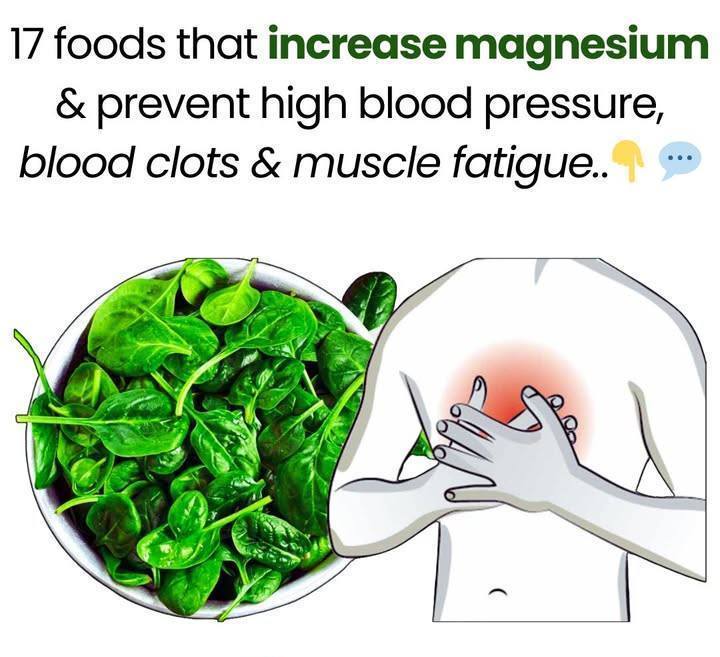ADVERTISEMENT
17 Foods That Increase Magnesium And Prevent High Blood Pressure, Blood Clots And Muscle Fatigue

How Chronic Stress Depletes Your Body of Magnesium
The relationship between magnesium and stress is very complex. In one study, it was found that chronically stressed individuals had much lower magnesium levels when compared with control groups. And those who had healthy magnesium levels to begin with showed fewer signs of stress. Basically, stress can lead to magnesium loss in the body, but having more than enough magnesium stores can help protect against stress.
Leo Galland, MD explains the process further: “Chronic stress depletes your body of magnesium. The more stressed you are, the greater the loss of magnesium. The lower your magnesium level to begin with, the more reactive to stress you become and the higher your level of adrenalin in stressful situations. Higher adrenaline causes greater loss of magnesium from cells. Administering magnesium as a nutritional supplement breaks this vicious cycle by raising blood magnesium levels and buffering the response to stress, building your resistance.”
Risk factors for magnesium deficiency include (2):
Kidney disease
Crohn’s disease or other conditions that affect digestion
Parathyroid problems
Taking antibiotics or drugs for diabetes and cancer
Old age
Abusing alcohol
How To Get More Magnesium
Many people take magnesium supplements, but they don’t always take the right kind.
Small studies have found that magnesium in the aspartate, citrate, lactate, and chloride forms is absorbed more completely and is more bioavailable than magnesium oxide and magnesium sulfate (1).
If you do choose to take magnesium supplements, speak to your doctor to make sure that you get adequate levels of calcium, and Vitamins K2 and D3 since these nutrients interact together and improve absorption.
Many foods are fortified with calcium and vitamin D, but you may need to supplement vitamin K2. You doctor should also be able to tell you exactly how much you need and monitor your levels after you begin supplementation.
Here’s how much magnesium you need, according to the National Institutes of Health:
Recommended Dietary Allowances (RDAs) for Magnesium
Age Male Female Pregnancy Lactation
Birth to 6 months 30 mg* 30 mg*
7–12 months 75 mg* 75 mg*
1–3 years 80 mg 80 mg
4–8 years 130 mg 130 mg
9–13 years 240 mg 240 mg
14–18 years 410 mg 360 mg 400 mg 360 mg
19–30 years 400 mg 310 mg 350 mg 310 mg
31–50 years 420 mg 320 mg 360 mg 320 mg
51+ years 420 mg 320 mg
*Adequate Intake (AI)
Regular Epsom salt baths or foot baths are also a great way get more magnesium since it can be absorbed through your skin. You can also apply magnesium oil on your body if you dislike baths.
see continuation on the next page